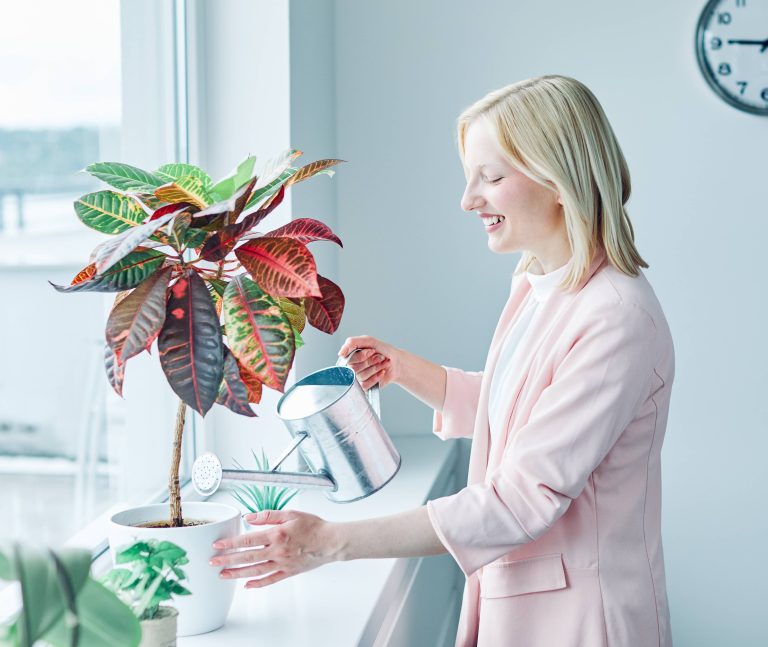
In recent years, the trend of indoor gardening has seen a marked rise, with many people turning their living spaces into green havens filled with lush foliage and vibrant greenery. Among the myriad plant choices available, indoor herbs stand out not only for their aesthetic appeal but also for the numerous health benefits they offer. Whether you’re a seasoned gardener or just starting your plant parenting journey, growing indoor herbs can enhance your well-being in surprising ways.
1. Fresh Herbs in Your Kitchen: A Nutritional Boon
One of the most immediate benefits of growing indoor herbs is the convenience of having fresh culinary ingredients right at your fingertips. Herbs like basil, mint, cilantro, parsley, and thyme are packed with essential vitamins and minerals. For instance, basil contains vitamin K, which plays a crucial role in bone health and blood clotting. Meanwhile, parsley is rich in vitamins A and C, providing antioxidants that can strengthen your immune system.
Using these herbs in your daily cooking not only enriches your meals with delightful flavors but also boosts your nutritional intake, helping to maintain a healthier lifestyle. Say goodbye to nutrient loss typically associated with store-bought herbs, which may have been harvested days or even weeks before reaching your kitchen.
2. Boosting Mental Health and Alleviating Stress
There’s something inherently therapeutic about tending to plants. The act of nurturing a living thing can bring a sense of peace and fulfillment. Indoor herbs, with their verdant leaves and soothing fragrances, can significantly contribute to mental wellness. The process of planting, watering, and observing a sprouting herb can be a meditative practice, reducing stress and promoting relaxation.
Moreover, studies have shown that merely being around plants can lower anxiety levels and improve mood. Aromatic herbs like lavender are known for their calming properties, making them perfect natural stress relievers. Imagine sitting in your favorite nook with a book, surrounded by the refreshing scent of mint or the calming aroma of lavender—simple pleasures that can lift your spirit after a long day.
3. Improving Air Quality
Indoor air pollution is a pressing concern in many homes, exacerbated by factors such as dust, mold, and volatile organic compounds (VOCs) emitted by paints, furnishings, and household products. Fortunately, many common indoor herbs are excellent at purifying the air.
Plants absorb carbon dioxide and release oxygen, thus replenishing the air inside your home. Moreover, herbs like rosemary and mint can help remove airborne pollutants and volatile organic compounds from the air. Growing herbs indoors can contribute to creating a cleaner, healthier living environment, beneficial for everyone but especially for individuals with allergies or respiratory conditions.
4. Enhancing Cognitive Function
The benefits of indoor herbs extend to boosting cognitive health as well. Certain herbs are known for their ability to improve mental clarity and memory. Rosemary is famously associated with boosting memory; its scent is said to improve concentration and increase overall cognitive performance.
Including such herbs in your living and working spaces could foster an environment conducive to productivity and learning. Whether you’re working from home, studying, or engaging in creative projects, the presence of rosemary and similar herbs could give you the mental edge you need.
5. Aiding Digestive Health
Digestive health is paramount to overall well-being, and herbs can play a significant role in maintaining it. Many common indoor herbs offer digestive benefits. For example, mint is well-regarded for soothing gastrointestinal discomfort. Chamomile, while typically associated with tea, can also be grown indoors and is known for relieving indigestion and inflammation.
Incorporating these herbs into your diet—either as infusions, garnishes, or ingredients—can aid in digestion and help manage digestive disorders. This maintenance of a harmonious digestive system is key to enhancing your body’s nutrient absorption and boosting your overall health.
6. Encouraging a Sustainable Lifestyle
Growing indoor herbs also promotes sustainability and environmental consciousness. By cultivating your own herbs, you reduce your dependency on commercially produced ones, which often involve carbon-intensive transportation and plastic packaging. Plus, herbs are typically low-maintenance and require less space and resources compared to larger crops.
Moreover, by recycling kitchen scraps into compost and reusing plant containers, you are actively participating in an eco-friendly cycle, thus minimizing waste and promoting biodiversity. Cultivating herbs indoors is not just a boon for your health but also a step toward a greener, more sustainable lifestyle.
Conclusion
The practice of indoor gardening, specifically growing herbs indoors, offers multifaceted health benefits that stretch beyond mere nutrition. From the mental tranquility it fosters to its environmental implications, cultivating a variety of herbs in your home can lead to a more balanced and healthy lifestyle.
Embrace the unique opportunity to connect with nature by nurturing your own mini herb garden, and revel in the peace and wellness it brings to your home. In doing so, not only will your recipes shine with fresh flavors, but you may also find your days imbued with a subtle harmony and your life enriched by the simple pleasure of nurturing life from seed to sprout. So grab some pots and soil, choose your favorite herbs, and start this rewarding journey towards enhanced well-being and a greener living space.













